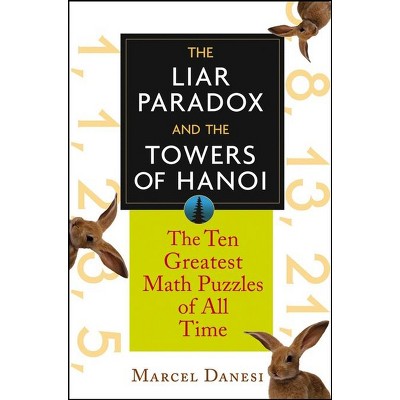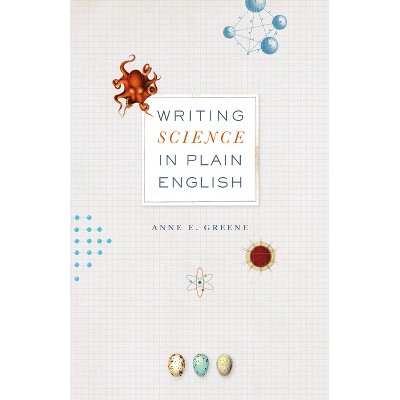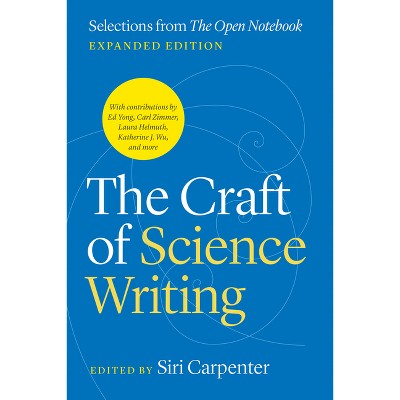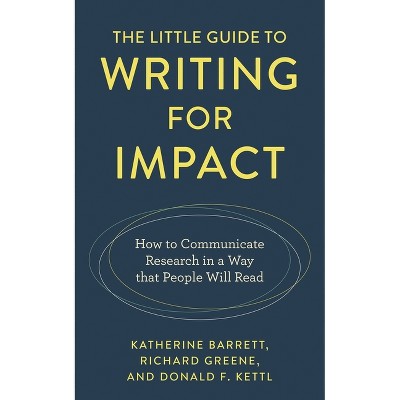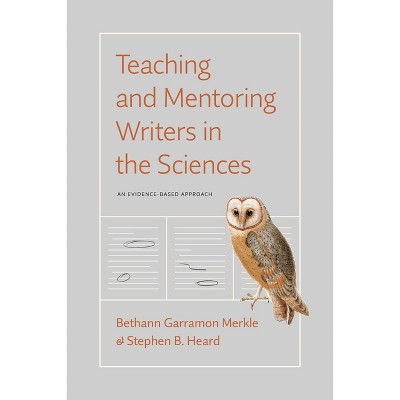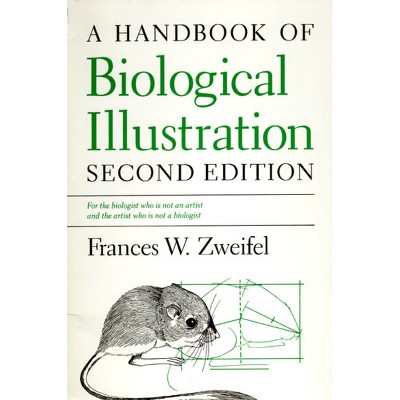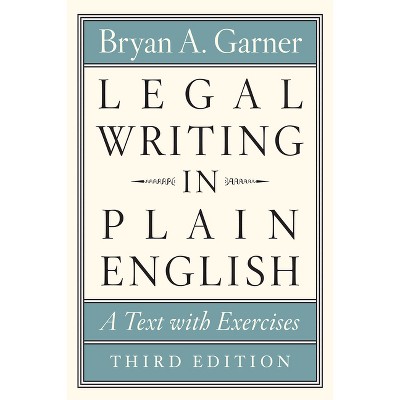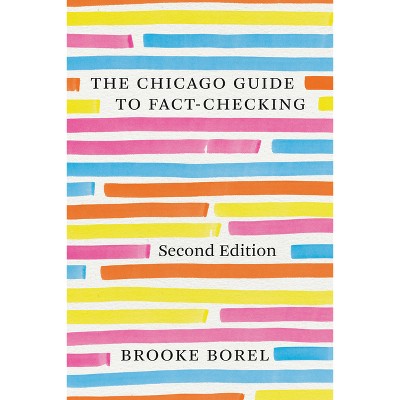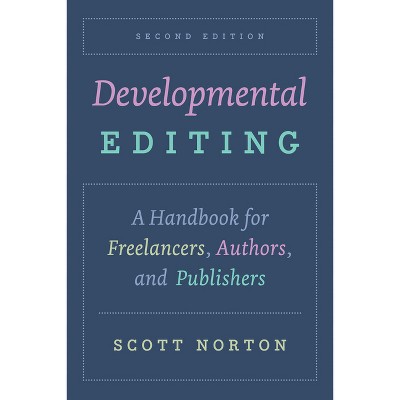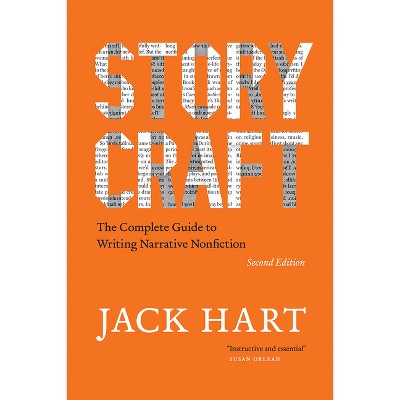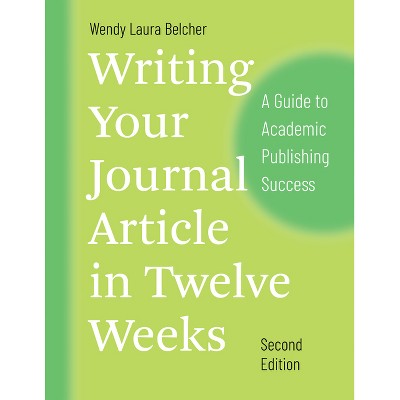Sponsored

Writing Science in Plain English, Second Edition - (Chicago Guides to Writing, Editing, and Publishing) 2nd Edition by Anne E Greene (Paperback)
$19.00
In Stock
Eligible for registries and wish lists
Sponsored
About this item
Highlights
- An updated edition of the essential guide for all scientists--from undergraduates to senior scholars--who want to produce prose that anyone can understand.
- About the Author: Anne E. Greene is a biologist who is interested in how scientists communicate their research to a broad audience.
- 144 Pages
- Science, Reference
- Series Name: Chicago Guides to Writing, Editing, and Publishing
Description
About the Book
"An updated edition of the essential guide for all scientists-from undergraduates to senior scholars-who want to produce prose that anyone can understand. Scientific writing is often dry, wordy, and difficult to understand. But, as biologist and experienced teacher of scientific writing Anne E. Greene shows in Writing Science in Plain English, writers from all scientific disciplines can learn to produce clear, concise prose by mastering just a few simple principles. This short, focused guide presents roughly a dozen such principles based on what readers need to understand complex information, including concrete subjects, strong verbs, consistent terms, organized paragraphs, and correct sentence structure. Greene illustrates each principle with real-life examples of both good and bad writing and shows how bad writing might be improved. She ends each chapter with revision exercises (and provides suggested answers in a separate key) so that readers can come away with new writing skills after just one sitting. To help readers understand the grammatical terms used in the book, an appendix offers a refresher course on basic grammar. For this second edition, Greene has incorporated the latest research on what makes writing effective and engaging and has revised or replaced exercises and exercise keys where needed. She has also added new features that make it easier to navigate the book. A new resource for instructors who use Writing Science in Plain English in their classes is a free, online teacher's guide. Drawn from Greene's long experience teaching students how to write science clearly, the teacher's guide provides additional lectures, assignments, and activities that will inform and enliven any class"--Book Synopsis
An updated edition of the essential guide for all scientists--from undergraduates to senior scholars--who want to produce prose that anyone can understand. Scientific writing is often dry, wordy, and difficult to understand. But, as biologist and experienced teacher of scientific writing Anne E. Greene shows in Writing Science in Plain English, writers from all scientific disciplines can learn to produce clear, concise prose by mastering just a few simple principles. This short, focused guide presents roughly a dozen such principles based on what readers need to understand complex information, including concrete subjects, strong verbs, consistent terms, organized paragraphs, and correct sentence structure. Greene illustrates each principle with real-life examples of both good and bad writing and shows how bad writing might be improved. She ends each chapter with revision exercises (and provides suggested answers in a separate key) so that readers can come away with new writing skills after just one sitting. To help readers understand the grammatical terms used in the book, an appendix offers a refresher course on basic grammar. For this second edition, Greene has incorporated the latest research on what makes writing effective and engaging and has revised or replaced exercises and exercise keys where needed. She has also added new features that make it easier to navigate the book. A new resource for instructors who use Writing Science in Plain English in their classes is a free, online teacher's guide. Drawn from Greene's long experience teaching students how to write science clearly, the teacher's guide provides additional lectures, assignments, and activities that will inform and enliven any class.Review Quotes
"Perhaps we can stem the downward slide into anti-science wilful ignorance that is increasingly plaguing our time. To be sure, it won't be an easy task, but if we truly believe that knowledge is the best antidote to ignorance we must make our best effort to do so. And in making such an effort, this new edition of Greene's Writing Science in Plain English offers all those engaging in this struggle a method to acquire a particularly valuable set of time-tested skills that will be needed if success is to be achieved."-- "The Well-read Naturalist"
"One of our biggest challenges as scientific writers has to be overcoming the temptation to write [with] jargon . . . and impenetrable complexity. This short book offers help (including exercises). Everyone--yes, everyone--should take advantage."--Stephen B. Heard "Scientist Sees Squirrel, on the First Edition"
"Greene's book is an excellent, concise guide to writing science in simple language. . . . The purpose of writing a journal article isn't to make ourselves sound intelligent; it's to share our knowledge, and that's best accomplished by thinking first and foremost of our readers. Explaining complex science in a simple and understandable way is far more impressive than a dense and incomprehensible wall of text. Writing Science in Plain English is all about helping scientists achieve those communication goals, and, in my opinion, it deserves a spot on every scientist's bookshelf. Or better yet, have a copy sitting open next to you as you revise!"--Nicole Sharp "Sharp SciComm, on the First Edition"
"[Greene's] wisdom seems almost endless: use the same terms for the same thing; don't use technical terms if your audience won't understand them; avoid non-parallelism; vary sentence length to avoid monotony; cutout superfluous words (including the); use transition words such as however and therefore to guide the reader; replace wordy phrases with single words. It really reads like a'What's What' of good writing."-- "Medical Writing, on the First Edition"
"This slim, modestly priced volume should be of practical use for anyone who writes about science and struggles to do so better--or who teaches others who are similarly struggling. . . . This book is chock full of concrete examples using scientific material that illustrate issues in identifying the right audience, level of formality (or 'register'), and tone; telling a story and using active voice; word choice and the elimination of excess words; and organizing sentences, lists, paragraphs, and entire pieces effectively."-- "Science Communication, on the First Edition"
"Writing Science in Plain English should be required reading for both established scientists and undergraduates who might become scientists. Greene uses plain English and instructive examples from the scientific literature to show student writers how to say what they need to say more concisely, more accessibly, and more effectively. Would that all writers followed her advice."--John Alcock, Arizona State University, on the First Edition
"A great resource for anyone preparing to embark on scientific writing--whether a paper for class or a research article submitted for publication."-- "Choice, on the First Edition"
"As one might expect from the title, Writing Science in Plain English is clear, concise, and very easy to understand. In fact, it's one of the best books on writing I've come across. If you only read one book on science writing, make it this one."-- "Edge for Scholars, on the First Edition"
"Greene's feet are placed firmly on the ground. Her recommendations are widely applicable, and the solid ideas presented in this book should influence good use of English in any situation. Scientists should treat Writing Science as a user manual to keep their writing on track."-- "Journal of Scholarly Publishing, on the First Edition"
"I feel like I have found a reference to keep on my shelf for the rest of my career. . . . In fact, after reading Writing Science in Plain English, I want to go back and edit every journal article I have ever written."-- "ESA.org's SciComm Lit Review, on the First Edition"
"In these . . . brisk pages, Greene manages to deliver a series of practical, hands-on lessons to make scientific prose more lucid, more direct, more immediately comprehensible, and, yes, more concise."-- "Science Editor, on the First Edition"
"This guide echoes the advice I have given to students in scientific writing classes over my career. It rebuts the notion that science writing is different in kind and exempt from the rules that apply to other non-fiction writing: it requires strong narrative direction, active voice, strong verbs, short words where possible, and so on. This lucid, step-by-step book should be required reading for entering graduate students in the life sciences, and will be a welcome addition to the instructor's reference shelf."--Steven W. Buskirk, University of Wisconsin-Madison, on the First Edition
"This is the best book of this sort I have read. Greene practices what she preaches, writing clearly for a general scientific audience. She comes across as both highly knowledgeable and accessible. Greene makes achieving clarity look simple, and I found myself marveling at her wizardry. Readers will find the text empowering."--Gina Maranto, University of Miami, on the First Edition
"Why must the scientific literature be as confusing and dull as an insurance contract or a manufacturer's warranty? It doesn't have to be like that! Writing Science in Plain English can teach any scientist how to write more compelling and lucid papers. Greene deserves a round of applause from scientific editors, peer reviewers, and readers everywhere."--David S. Wilcove, Princeton University, on the First Edition
"Writing in science has reached an all-time nadir and has become practically unintelligible to all but specialists in narrow fields. Professional articles on science are burdened by cumbersome expression, poor grammar, and a concomitant lack of precision and clarity. Accordingly, there is a great need for a primer of scientific writing. The brief book Writing Science in Plain English addresses that need."-- "Integrative and Comparative Biology, on the First Edition"
"Written in a breezy, engaging style in plain English; the author practices what she preaches. Copious in-text examples are provided to explain the key points of each chapter. Readers can also test themselves with the practice exercises at the end of each chapter, and answers are helpfully provided with commentary in an appendix. . . . Who will benefit from this book? Anyone involved in science communication, including writers and translators."-- "Japan Association of Translators, on the First Edition"
About the Author
Anne E. Greene is a biologist who is interested in how scientists communicate their research to a broad audience. She taught scientific writing to undergraduates in wildlife biology, geology, and neuroscience at the University of Montana for fifteen years. She also taught workshops on scientific writing to university graduate students and faculty and to scientists in nongovernmental organizations, private research institutions, and federal agencies across the country.Dimensions (Overall): 8.4 Inches (H) x 5.4 Inches (W) x .5 Inches (D)
Weight: .4 Pounds
Suggested Age: 22 Years and Up
Number of Pages: 144
Genre: Science
Sub-Genre: Reference
Series Title: Chicago Guides to Writing, Editing, and Publishing
Publisher: University of Chicago Press
Format: Paperback
Author: Anne E Greene
Language: English
Street Date: April 29, 2025
TCIN: 1006101686
UPC: 9780226825038
Item Number (DPCI): 247-50-2549
Origin: Made in the USA or Imported
If the item details aren’t accurate or complete, we want to know about it.
Shipping details
Estimated ship dimensions: 0.5 inches length x 5.4 inches width x 8.4 inches height
Estimated ship weight: 0.4 pounds
We regret that this item cannot be shipped to PO Boxes.
This item cannot be shipped to the following locations: American Samoa (see also separate entry under AS), Guam (see also separate entry under GU), Northern Mariana Islands, Puerto Rico (see also separate entry under PR), United States Minor Outlying Islands, Virgin Islands, U.S., APO/FPO
Return details
This item can be returned to any Target store or Target.com.
This item must be returned within 90 days of the date it was purchased in store, shipped, delivered by a Shipt shopper, or made ready for pickup.
See the return policy for complete information.
Frequently bought together
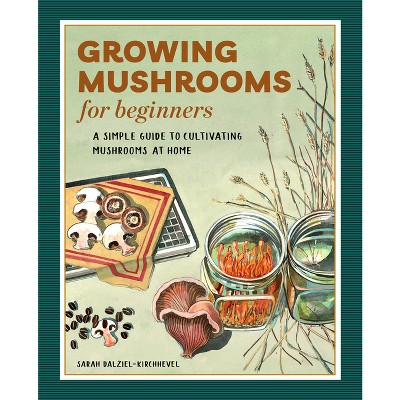
$8.49
MSRP $14.99
Buy 1, get 1 50% off select books
2 out of 5 stars with 1 ratings
